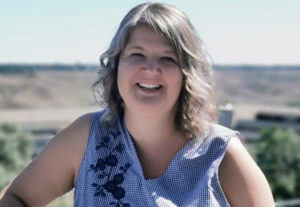Cultural connection key to successful transition
By Jensen, Randy on June 22, 2020.
 Janice Victor - University of Lethbridge photo
Janice Victor - University of Lethbridge photoSubmitted by the University of Lethbridge
University of Lethbridge professor Janice Victor intends to be part of the solution strategy put forward by Making the Shift Inc. – a Centre of Excellence of Canada that is seeking to shift the focus from management to prevention of youth homelessness.
Victor has been awarded $85,580 for her project, Ai’aoskiikowaata (providing guidance to youth): Supporting healthy transitions from government care to independent living, which looks specifically at the disproportionate representation of Indigenous youth in child welfare systems and ensuring poor educational and health outcomes. Her project will use a multi-media storytelling methodology (with co-investigator Don McIntyre in the Dhillon School of Business) and post-transition survey (with co-investigator Dr. Olu Awosoga in the Faculty of Health Sciences) to better understand the experiences of youth transitioning out of government care in an effort to identify cultural-appropriate strategies to uphold their cultural connection.
It has been shown through multiple studies that Indigenous children deprived of cultural connections are substantially more susceptible to poor health outcomes, experiencing a higher risk for homelessness, addiction and criminalization. Blackfoot youth in government systems who are disconnected from their culture are just as vulnerable.
“One of the big problems we have is there are not enough Blackfoot foster homes,” says Victor, who teaches in the university’s Faculty of Health Sciences. “We are basically continuing the ’60’s scoop in a way because we see that disconnection from culture taking place.”
Dealing with the ramifications of culture loss after the fact is a never-ending cycle of continued government care, where Victor and her work would rather focus on finding strategies to ensure Indigenous children maintain cultural connections while in care, which in turn will aid youth as they first transition out of government care with support from their community. Gaining the perspective of those who have travelled through the system is invaluable and storytelling is a natural way to access their lived experiences.
“Through storytelling, you start to see the real struggle youth have and the real underlying questions, the importance of cultural connection and well-being,” she says. “It’s about an identity they have lost, a way of life. Even the term Ai’aoskiikowaata means providing guidance to youth, and it is referring to what the Blackfoot have always known about how these practices give guidance to leading a healthy life.”
Victor will be looking for participants from Lethbridge, Medicine Hat and Calgary, and would ideally have 12 participants for the storytelling project from each community. Her results could inform legislators and knowledge users on a wise practice approach specific to individual circumstance, history, geography and educational knowledges.
“One thing I’m really aware of is trying to refine my approach to make sure what we’re doing is grounded in what the community needs and what the Blackfoot community is saying is important,” says Victor, who credits knowledge holders Dan Fox and Tom Chief Calf as providing guidance for the project. “One thing we do understand is that child-care services need to be run by the community, they need to be run by Indigenous peoples because they need to have control over raising their children again – as they did for millennia.”
The study itself will begin with the administration of a large survey to youth people under 30 who have aged out of care in southern Alberta. The storytelling aspect, including interviews and the compilation of the stories, is somewhat dependent on current social distancing restrictions. Victor has set up a website for potential participants at agingoutproject.ca.
“One of the ideas I’d love to pursue once we are finished is to bring the stories from the three locations together and have that as a form of knowledge translation and knowledge sharing amongst one another and with the broader community.”
12-11




